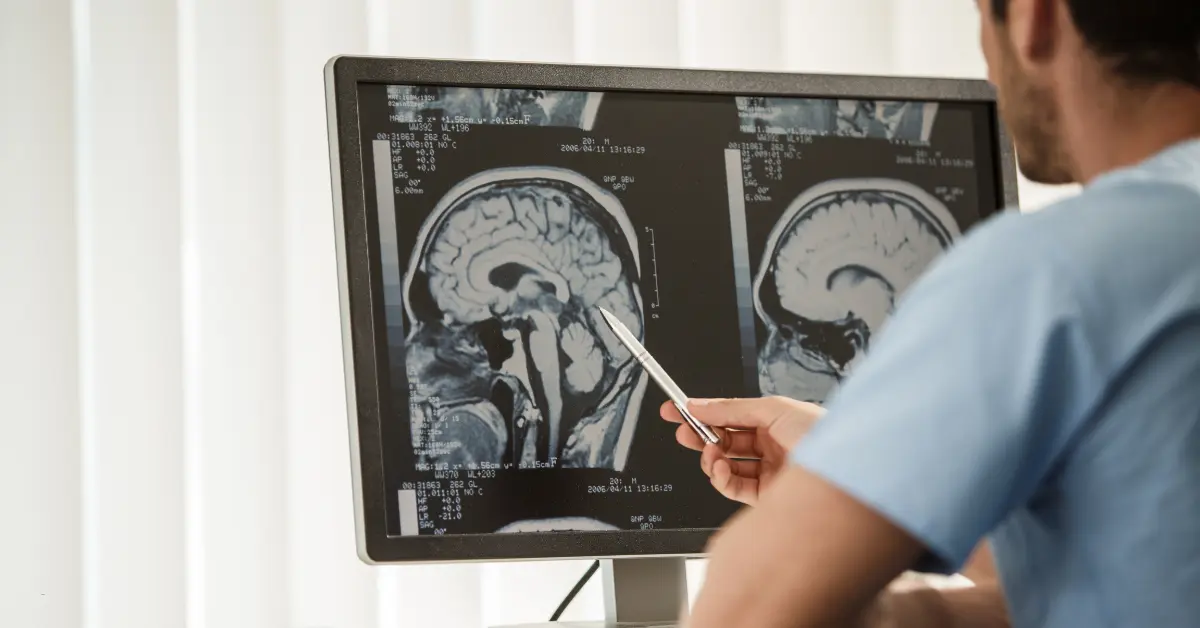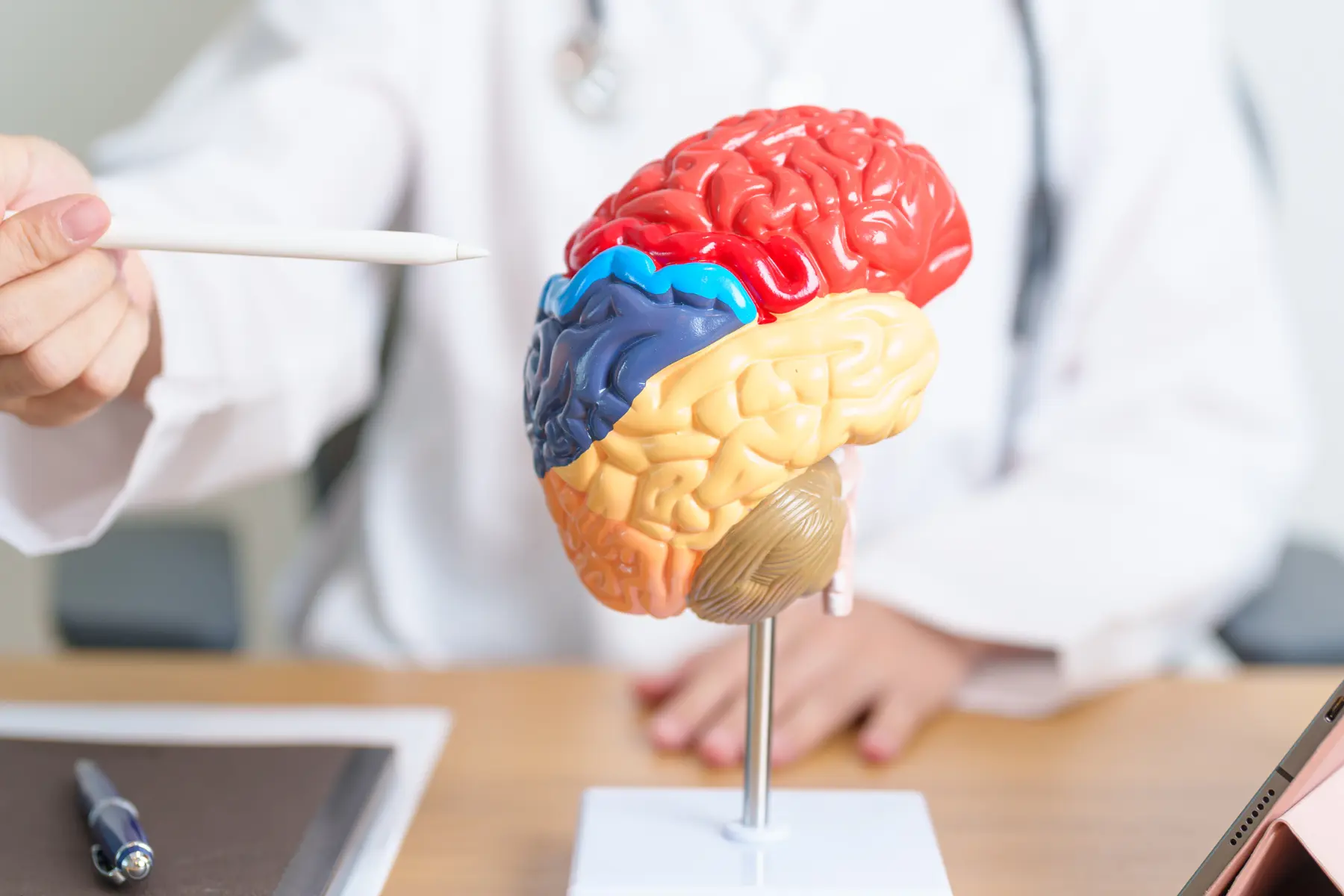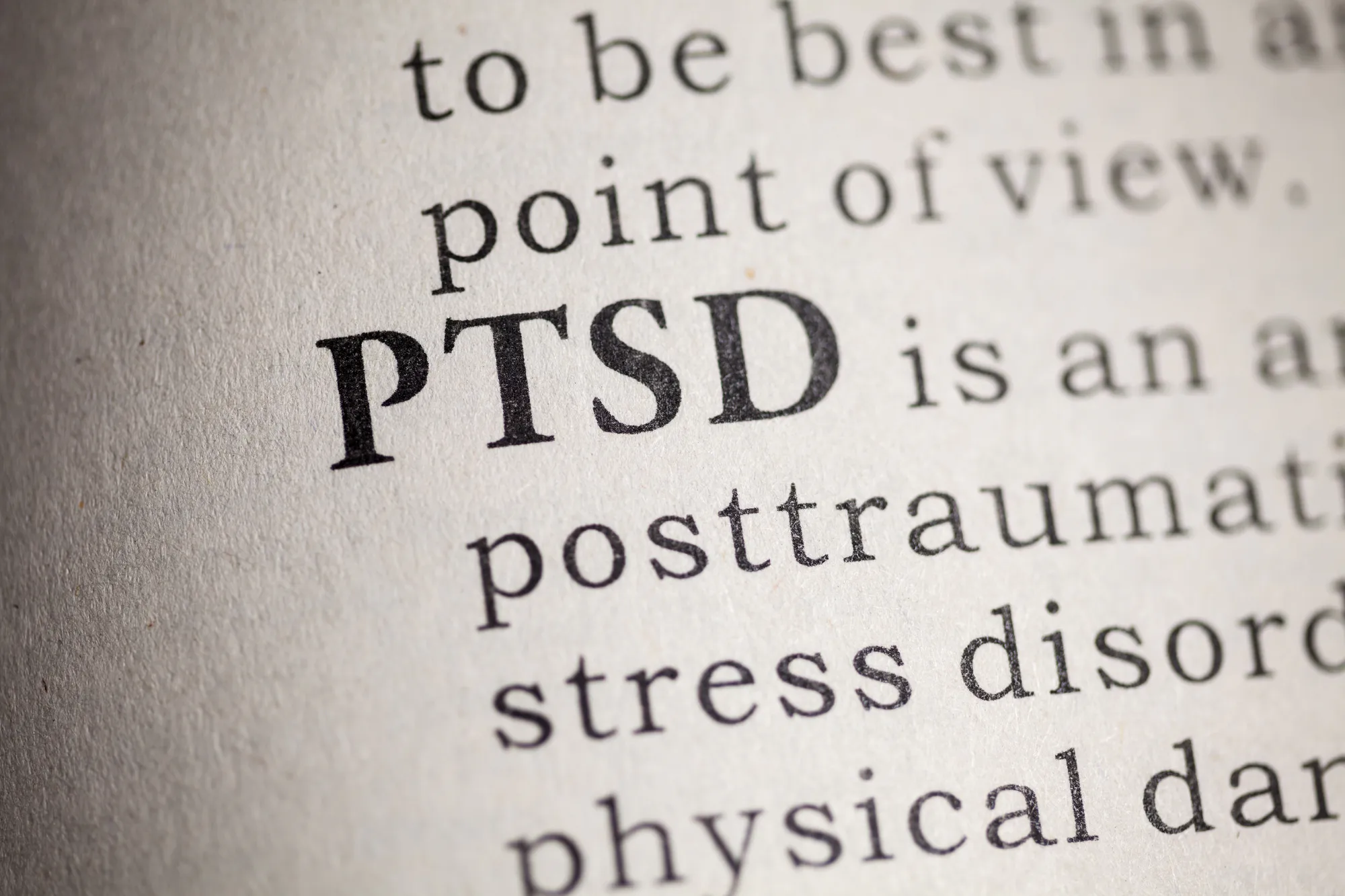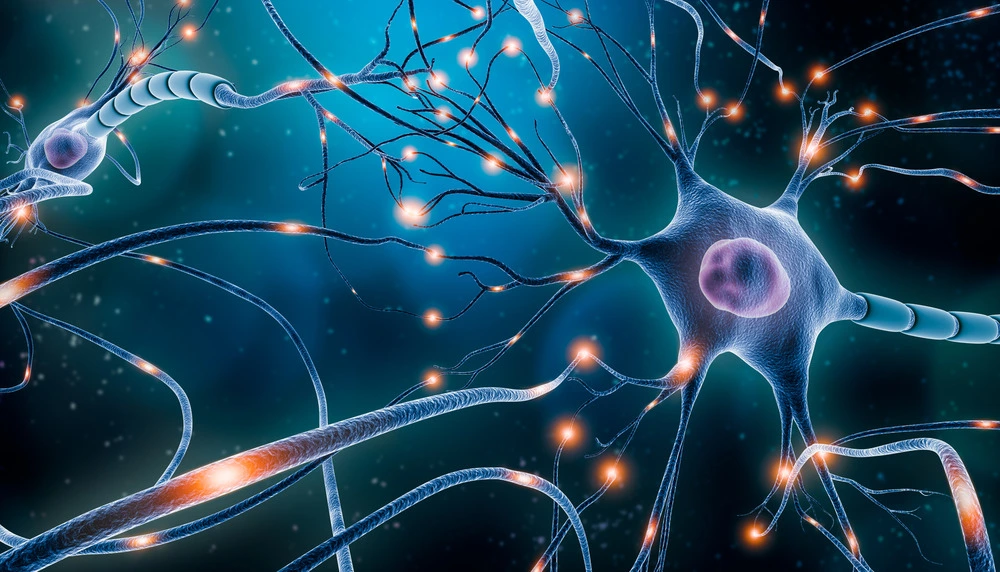What is TMS therapy? Transcranial magnetic stimulation (TMS) is a non-invasive procedure that uses magnetic fields to stimulate nerve cells in the brain. This stimulation can improve symptoms of depression. TMS therapy is typically used when other depression treatments, such as medication and psychotherapy, haven’t been effective. The procedure involves placing an electromagnetic coil against the scalp. This coil generates magnetic pulses that pass through the skull and target specific brain areas involved in mood regulation. By stimulating these areas, TMS therapy for depression can enhance brain activity, leading to a reduction in depressive symptoms and an overall improvement in mental health. The non-invasive nature of TMS therapy means that it does not require surgery or anesthesia, making it a safe and accessible option for many patients.
History and Development of TMS Therapy
The development of transcranial magnetic stimulation dates back to the 1980s. Initially, it was used to study brain function, but researchers soon discovered its potential in treating various neurological and psychiatric conditions. Over the years, TMS therapy has evolved significantly, with numerous clinical trials confirming its effectiveness and safety. Today, it is recognized as a valuable tool in treating depression, especially for those who do not respond to traditional treatments.
Key Components: The Magnetic Coil and Pulse Mechanism
The core components of TMS therapy include the magnetic coil and the pulse mechanism. The magnetic coil is placed against the patient’s scalp, usually near the forehead. This coil generates magnetic pulses that pass through the skull and stimulate nerve cells in the brain. These pulses are carefully controlled and targeted to specific areas of the brain associated with mood regulation, making TMS therapy for depression precise and effective.
How TMS Differs from Other Depression Treatments
TMS therapy for depression differs from other treatments like medication and electroconvulsive therapy (ECT). Unlike medications, which affect the entire body, TMS targets specific brain areas with minimal systemic side effects. Unlike ECT, TMS does not require anesthesia and is non-invasive, meaning it does not involve surgery or implantation of devices. This makes TMS treatment a preferred option for many patients looking for a less invasive alternative.
The Process of TMS Therapy
Initial Consultation and Patient Assessment
The process of TMS therapy begins with an initial consultation and patient assessment. During this session, a healthcare provider will evaluate the patient’s medical history, current symptoms, and previous treatment responses. This assessment helps determine if the patient is a suitable candidate for TMS therapy. The provider will also discuss the potential benefits and TMS therapy side effects to ensure the patient is well-informed. Key points include:
- Medical History Evaluation: The provider reviews the patient’s health background to identify any potential risks.
- Symptom Assessment: Understanding current symptoms helps tailor the treatment to the patient’s needs.
- Previous Treatments: Analyzing past treatments ensures a comprehensive approach to TMS therapy.
- Discussion of Benefits and Side Effects: Patients receive detailed information about what to expect from TMS therapy.
Step-by-Step Breakdown of a TMS Session
A typical TMS therapy session involves several steps. First, the patient is seated comfortably in a chair, and the magnetic coil is positioned against their scalp. The provider then calibrates the machine to deliver the appropriate magnetic pulses. Each session lasts about 30 to 40 minutes, during which the patient remains awake and alert. The non-invasive nature of transcranial magnetic stimulation ensures that patients can resume their daily activities immediately after the session. Main steps include:
- Comfortable Seating: Patients sit comfortably, ensuring relaxation during the session.
- Magnetic Coil Placement: The coil is precisely positioned on the scalp to target specific brain areas.
- Machine Calibration: The provider adjusts the machine settings to deliver effective magnetic pulses.
- Session Duration: Each session lasts between 30 to 40 minutes, ensuring adequate stimulation.
- Post-Session Activities: Patients can return to their normal activities immediately after the session.
Duration and Frequency of Treatment
TMS therapy usually requires multiple sessions over several weeks. A common treatment course involves five sessions per week for four to six weeks. The exact duration and frequency depend on the patient’s specific needs and response to the treatment. Regular sessions help achieve the best possible outcomes, making TMS for depression an effective long-term solution for many patients. Important aspects are:
- Multiple Sessions: Treatment involves several sessions spread over weeks.
- Typical Course: Commonly, patients undergo five sessions per week for four to six weeks.
- Tailored Frequency: Frequency and duration are adjusted based on individual patient needs.
- Effective Outcomes: Regular sessions ensure consistent and lasting improvements in depression symptoms.
What to Expect During and After Each Session
Patients undergoing TMS treatment can expect a mild tapping sensation on their scalp during each session, caused by the magnetic pulses. Some patients might experience slight discomfort or headaches, but these are typically temporary. After each session, patients can resume their normal activities without any downtime. Over the course of the treatment, many patients report a gradual improvement in their mood and a reduction in depression symptoms, highlighting the effectiveness of TMS therapy for depression. Key expectations include:
- Tapping Sensation: Mild tapping on the scalp from the magnetic pulses.
- Temporary Discomfort: Possible slight discomfort or headaches, usually short-lived.
- No Downtime: Patients can immediately return to their regular activities post-session.
- Mood Improvement: Gradual enhancement in mood and reduction in depression symptoms over time.
Effectiveness of TMS Therapy for Depression
Success Rates and Clinical Outcomes
TMS therapy for depression has shown promising success rates in clinical trials and real-world applications. Studies indicate that approximately 50-60% of patients who have not responded to medications experience significant improvement in their depression symptoms after undergoing TMS treatment for depression. Furthermore, about one-third of these patients achieve complete remission. These positive outcomes demonstrate the potential of TMS therapy to offer substantial relief for individuals with treatment-resistant depression.
Comparing TMS Therapy to Traditional Treatments
When comparing TMS therapy to traditional treatments, such as antidepressant medications and psychotherapy, transcranial magnetic stimulation stands out due to its non-invasive nature and minimal side effects. While medications can take weeks to show effects and often come with systemic side effects, TMS therapy can provide faster symptom relief with targeted brain stimulation. This precision allows TMS therapy for depression to deliver effective results without affecting other parts of the body. Additionally, TMS therapy does not involve the use of anesthesia or result in cognitive side effects, making it a more appealing option for many patients. This makes TMS for depression an attractive alternative for patients seeking effective and timely relief, especially for those who have not found success with traditional methods. The ability to resume daily activities immediately after treatment further enhances its appeal as a practical and efficient treatment option.
Case Studies and Patient Testimonials
Numerous case studies and patient testimonials highlight the effectiveness of TMS therapy for depression. Patients often describe significant improvements in their mood, energy levels, and overall quality of life. For example, individuals who had struggled with severe depression for years report feeling more optimistic and engaged in their daily activities after completing TMS treatment. These personal stories underscore the transformative impact of TMS therapy on patients’ lives.
Long-Term Benefits and Maintenance
The long-term benefits of TMS therapy for depression can be substantial. Many patients experience sustained relief from depression symptoms even after the initial treatment course. However, some individuals may require maintenance sessions to uphold these benefits. TMS therapy maintenance typically involves periodic sessions to prevent relapse and maintain mood stability. This ongoing care ensures that patients continue to enjoy improved mental health and overall well-being.
Advantages of TMS Therapy
Non-Invasive and Drug-Free Approach
One of the primary advantages of TMS therapy is its non-invasive and drug-free approach. Patients do not need to undergo surgery or take medications that can cause systemic side effects. Instead, TMS therapy uses magnetic pulses to stimulate brain activity, offering a natural and safe way to alleviate depression symptoms. This approach is particularly beneficial for patients who prefer to avoid pharmaceuticals or who have not responded well to medications.
Targeted Treatment with Minimal Systemic Side Effects
TMS therapy provides targeted treatment with minimal systemic side effects, as the magnetic pulses are directed precisely at the brain areas involved in mood regulation. This precision ensures that other parts of the body remain unaffected, reducing the likelihood of unwanted side effects. For patients seeking an effective and focused treatment for depression, TMS therapy offers a promising solution.
Rapid Symptom Relief for Treatment-Resistant Depression
For individuals with treatment-resistant depression, TMS therapy can offer rapid symptom relief. Traditional antidepressants can take several weeks to become effective, whereas TMS therapy can produce noticeable improvements within a few sessions. This swift response is crucial for patients who have endured prolonged periods of depression and are in urgent need of effective treatment. TMS therapy provides a timely and effective option for these individuals.
Enhancing Quality of Life and Daily Functioning
TMS therapy has been shown to enhance the quality of life and daily functioning for many patients. By alleviating depression symptoms, patients can experience improved mood, better energy levels, and increased engagement in their daily activities. This improvement in mental health translates to a more fulfilling and productive life. For those struggling with depression, TMS therapy can offer a pathway to a brighter and more active future.
Preparing for TMS Therapy
How to Get Ready for Your First Session
Preparing for your first TMS therapy session involves several important steps. First, ensure you have a detailed consultation with your healthcare provider to understand the procedure and what to expect. This initial meeting will cover your medical history, current medications, and previous treatments. It’s crucial to provide complete information to tailor the TMS treatment to your needs. Wear comfortable clothing and avoid using any hair products on the day of your session, as they can interfere with the placement of the magnetic coil.
Practical Tips for a Comfortable Experience
To have a comfortable experience during TMS therapy, consider these practical tips:
- Stay Relaxed: Try to stay relaxed and calm during the session. Breathing exercises can help reduce anxiety.
- Communication: Inform your provider of any discomfort immediately so adjustments can be made.
- Comfortable Setting: Ensure the treatment chair and surroundings are comfortable, as sessions can last up to 40 minutes.
- Aftercare: Plan for a calm and restful period after the session to allow your body to adjust.
These steps can enhance your overall experience with TMS therapy.
Managing Expectations and Setting Treatment Goals
Managing expectations and setting realistic treatment goals are crucial for a successful TMS therapy journey. Understand that while some patients experience rapid improvement, others may notice gradual changes over several weeks. Discuss your goals with your healthcare provider and establish benchmarks for progress. Regular assessments during the treatment course will help track improvements and adjust the therapy as needed. Being patient and maintaining a positive outlook can significantly impact your treatment experience and outcomes.
Post-Treatment Care and Follow-Up
Post-treatment care and follow-up are essential components of TMS therapy. After completing the initial course of treatments, regular follow-up appointments help monitor your progress and address any ongoing symptoms. Maintenance sessions might be recommended to sustain the benefits of TMS therapy for depression. Your healthcare provider will provide guidance on lifestyle adjustments and supportive therapies to enhance the long-term effectiveness of the treatment. Staying engaged in your care plan and communicating openly with your provider ensures the best possible outcomes.
Comparing TMS Therapy with Other Magnetic Therapies
Overview of Different Magnetic Therapies for Depression
- Transcranial Magnetic Stimulation (TMS):
- Uses targeted magnetic pulses to stimulate specific brain areas.
- Effective for treatment-resistant depression.
- Non-invasive with minimal side effects.
- Repetitive Transcranial Magnetic Stimulation (rTMS):
- A subtype of TMS involving repeated magnetic pulses.
- Similar efficacy to TMS but may vary in pulse frequency and duration.
- Magnetic Seizure Therapy (MST):
- Induces controlled seizures using magnetic fields.
- More intense than TMS and used when other treatments fail.
- Requires anesthesia and closer monitoring.
Understanding these differences helps patients make informed decisions about their treatment options, ensuring they choose the most suitable therapy for their needs.
How TMS Stands Out in Terms of Efficacy and Safety
- High Efficacy: Numerous studies show that TMS therapy for depression significantly reduces symptoms, especially in treatment-resistant cases.
- Safety Profile: TMS therapy is non-invasive with minimal side effects, making it a preferred choice.
- Targeted Approach: Offers more controlled and precise stimulation compared to other therapies, ensuring better outcomes and patient satisfaction.
These factors make TMS therapy stand out as a highly effective and safe option for treating depression.
Clinical Evidence Supporting TMS Therapy
- Extensive Research: Numerous randomized controlled trials and meta-analyses support the effectiveness of TMS therapy.
- Significant Improvements: Studies demonstrate considerable symptom reduction in patients undergoing TMS treatment.
- Growing Clinical Use: Positive results from clinical trials and real-world applications confirm its value in depression treatment.
The strong clinical evidence underscores the effectiveness of TMS therapy and supports its growing adoption in clinical practice.
Patient Perspectives on TMS vs. Other Treatments
- Preference for TMS: Patients often prefer TMS therapy due to its non-invasive nature and rapid results.
- Minimal Side Effects: Unlike medications that can cause systemic side effects or other therapies requiring anesthesia, TMS therapy is generally well-tolerated.
- Immediate Recovery: Allows patients to resume daily activities immediately after sessions, enhancing quality of life.
These patient perspectives highlight the advantages of TMS therapy in improving overall well-being and providing effective depression treatment.
TMS therapy is a non-invasive, safe, and effective treatment for depression, particularly for those who have not responded to traditional treatments. By using magnetic fields to stimulate specific brain areas, TMS therapy can reduce symptoms and improve overall mental health. The process involves regular sessions, each lasting about 30 to 40 minutes, with minimal side effects and no downtime. Clinical evidence and patient testimonials support its efficacy and safety.
Encouragement to Consider TMS for Depression Treatment
If you or a loved one is struggling with depression that has not improved with traditional treatments, TMS therapy may offer a new avenue for relief. The best TMS therapy clinics provide comprehensive care, ensuring that the treatment is tailored to your specific needs. With its promising success rates and minimal side effects, TMS therapy for depression is worth considering as part of your treatment plan.
Final Thoughts on the Future of Depression Treatments
The future of depression treatments looks promising with advancements like TMS therapy. As research continues to evolve, new and improved methods for managing depression are likely to emerge. Transcranial magnetic stimulation represents a significant step forward in providing effective and non-invasive treatment options. Continued innovation and clinical research will further enhance the efficacy and accessibility of these treatments, offering hope to millions affected by depression.
For those interested in pursuing TMS therapy, the next steps involve consulting with a healthcare provider to determine your suitability for the treatment. The first step is to schedule a detailed consultation where your medical history, current symptoms, and previous treatment responses will be thoroughly reviewed. This assessment helps the provider decide if TMS therapy is appropriate for you. They will also explain the procedure, potential benefits, and TMS therapy side effects, ensuring you are well-informed before making a decision. Finding a reputable clinic that offers the best TMS therapy is crucial for ensuring successful outcomes. Look for clinics with experienced professionals and positive patient reviews. The provider may also discuss financial considerations and insurance coverage. By taking these steps, you can explore this innovative treatment option and potentially improve your quality of life. Embarking on the journey of TMS therapy for depression can bring hope and relief, especially if traditional treatments have not been effective.


























